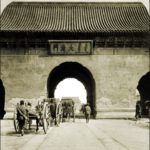Saori Katada (University of Southern California): “The BRICS and Collective Financial Statecraft”
Verfügungsgebäude VG 3.103 Platz der Göttinger Sieben 7, GöttingenAbstract: In the first decade of the 21st century, five rising powers (Brazil, Russia, India, China, and South Africa) formed an exclusive and informal international club, the BRICS. Although neither revolutionaries nor extreme revisionists, the BRICS perceive an ongoing global power shift and contest the West’s pretensions to permanent stewardship of the existing economic order. […]
Dominique Hertzer: “Die Resonanz von Körper und Geist – Zur Philosophie des Geistes im Chinesischen Denken”
Kulturwissenschaftliches Zentrum, KWZ 0.607 Heinrich-Düker-Weg 14, GöttingenAbstract: Die chinesische Vorstellung vom „Geist“ (shen 神) wird oftmals mit der westlichen Vorstellung von der „Psyche“ oder „der Seele“ gleichgesetzt. Doch gibt es im Chinesischen Denken überhaupt Vorstellungen, die unseren Begriffen von Psyche oder Seele entsprechen? Ausgehend von den klassischen Fragen des Leib-Seele Diskurses im Abendland werden wir uns der chinesischen Vorstellung nähern, die […]
Todd Hall (Oxford University): The Senkaku Islands Dispute: A MacGruffin?
Waldweg 9.102 Waldweg 26, Göttingen, DeutschlandShort Bio of the lecturer: Prof Hall earned his PhD from the University of Chicago in 2008 and has held postdoctoral fellowships at Princeton and Harvard, as well as visiting scholar appointments at the Free University of Berlin, Tsinghua University in Beijing, and the University of Tokyo. Prior to joining the University of Oxford, Prof […]
Vortragsreihe „On Stage: Chinesische Oper im Kulturkontakt“ – Karsten Gundermann, „China und die Barockmusik. Von Chinoiserien, Missionaren und gegenwärtigen Experimenten“
Tagungs- und Veranstaltungshaus Alte Mensa, Hannah-Vogt-Saal Wilhelmsplatz 3, GöttingenAbstract: In der Chinamode des Barockzeitalters verbindet sich europäische Neugier auf Kurioses und Fremdes mit Projektionen eigener Träume auf das ferne „Reich der Mitte“. Ballette, höfische Opern und Genrestücke der Kammermusik verlangten plötzlich nach chinesischen Klängen. Wie befriedigten die klassischen Komponisten Europas diese Nachfrage und welche Vorlagen nutzten sie? Was wusste man zur gleichen Zeit […]
Dr. Liza Wing Man Kam: “Underneath the grand yellow imperial roofs of Martyrs’ Shrines: Taiwan’s colonial past and onwards and the political symbolisms at play”
MPI. Max-Planck Institute for Study of Religious and Ethnic Diversity Hermann-Föge-Weg 12 (Villa), GöttingenAbstract: The paper investigates the shift of power symbolism represented in Shinto Shrines and Martyrs’ Shrines since the colonial era in Taiwan, through putting architectural/urban design theories into dialogue with political history. Three architectural complexes, Hualien Martyrs’ Shrine, Taipei National Revolutionary Martyrs’ Shrine and the Imperial Palace in Peking are interpreted in material and spatial […]
Qin Yaqing (China Foreign Affairs University): Chinese culture and foreign policy decision (中国文化与外交决策)
Verfügungsgebäude VG 3.103 Platz der Göttinger Sieben 7, GöttingenShort Bio of the lecturer: QIN Yaqing is President and Professor of China Foreign Affairs University (CFAU) and Chancellor of China Diplomatic Academy, Executive Vice-president of China National Association for International Studies (CNAIS) and editor-in-chief of Foreign Affairs Review, the academic journal of CFAU and CNAIS. He was on the resource team for the UN […]
Florian Coulmas (Universität Duisburg-Essen): “Die Alphabetschrift ist an und für sich die intelligentere.“ Überlegungen zur Bewertung von Schriftsystemen unter besonderer Berücksichtigung des Chinesischen
Theologicum, T0.134 Platz der Göttingen Sieben 2, GöttingenAbstract: Sind manche Schriftsysteme besser als andere? Gibt es sinnvolle und verlässliche Kriterien zur Bewertung von Schriftsystemen? Vor dem Hintergrund dieser Fragen vergleicht dieser Vortrag die chinesische Schrift mit anderen Schriften. Ausgangpunkt ist das in der Überschrift zitierte Verdikt des deutschen Philosophen Georg Friedrich Hegel, das eine positive Beantwortung der Frage nach einer möglichen qualitativen […]
Bene Bassetti (University of Warwick): „Chinese as a Second Language Writing System: Some Less Widely Researched Issues“
Verfügungsgebäude VG 2.108 Platz der Göttinger Sieben 7, GöttingenAbstract: This talk will explore some less widely researched topics related to the learning and use of hanzi and pinyin in learners of Chinese as a Foreign Language. First, we will look at how the interword spacing conventions of CFL learners’ first languages affect their Chinese word awareness and their reading of hanzi sentences and […]
Greg Distelhorst (MIT) & Diana Fu (University of Toronto): Citizenship & Bureaucracy in China
Waldweg -1.201 Waldweg 26, GöttingenArticulating Authoritatian Citizenship in China Greg Distelhorst (MIT) Evaluating the Bureaucracy in China and the US Diana Fu (University of Toronto) Short Bio: Greg Distelhorst: Greg Distelhorst is the Mitsubishi Career Development Professor and an Assistant Professor in Global Economics and Management at the MIT Sloan School of Management. His research explores the social impact […]
Iain Johnston (Harvard University): China and International Order: What Order? Which Order?
Verfügungsgebäude, VG 3.103 Platz der Göttinger Sieben 7, GöttingenAbstract: The discourse about China’s challenge to the liberal world order assumes that such an order exists. This talk argues that there are instead multiple orders in different arenas (military, trade, finance, information, environment, among others), and that there are tensions within and between these orders. China supports some of these orders, wants to reform […]
Dr. Zhang Chunjie (University of California, Davis): “Weber, China, and Cultural Pessimism”
Kulturwissenschaftliches Zentrum, KWZ 0.607 Heinrich-Düker-Weg 14, GöttingenAbstract: This talk attempts to read Max Weber's treatise on Chinese Confucianism and Taoism, contained in his magnum opus Wirtschaftsethik der Weltreligionen, as a critique of a rationalism that Weber sees as the core component of Christian puritanism and as the foundational force for the rise of capitalism in Europe and America. This talk is […]
Yang LU (The University of Nottingham): „Recent Research on SLA in Chinese and Pedagogic Issues“ (not public)
Kulturwissenschaftliches Zentrum, KWZ 0.701 Heinrich-Düker-Weg 14, GöttingenAbstract: Due to the great interest in learning Chinese as a foreign language (CFL), over the past two decades there has been an increased number of Studies related to Second Language Acquisition in Chinese (SLAC). Though the research field has not yet been fully established with a framework and more specific guidelines, there have been […]
Prof Liu Kang (Duke University): Chinese Exceptionalism: A Research Agenda
Verfügungsgebäude VG 3.103 Platz der Göttinger Sieben 7, GöttingenAbstract: This lecture explores the emergent Chinese exceptionalism in order to search for a possible research agenda from interdisciplinary approaches. It will focus on modern times from Mao to the present, especially the ideological formations of Sinicization of Marxism (Chinese Marxism or Mao Zedong Thought),and “Socialism with Chinese Characteristics” (from Deng to Xi). To begin […]
Voices of Struggle: LGTBQ & Feminist Activism in China and Beyond
17.04.: Emmy-Noether-Saal, Tagungs- und Veranstaltungshaus Alte Mensa, Wilhelmsplatz 3, Göttingen & 18.04.: ZHG 002Symposium: Academia meets Activism: Feminism in China Voices of Struggle explores the complex entanglements between activism and academia in transnational perspective. What does it mean to be an engaged or activist scholar today? How should we think about the connections/separations between the two spheres of activism and academia? And how can activists and academics best […]
Prof. Milinda Bannerjee (Ludwig-Maximilian University ): “Sovereignty, Natural Law and the Ironies of Decolonization: India and the Tokyo Trial”
ZESS,Raum AP26 Goßlerstr. 10, GöttingenAbstract: Is the demand for codified international criminal justice antithetical to the demand for agonistic decolonization of global political, military, and economic power? Or can the establishment of global norms of justice be made compatible with, and even grounded upon, anti-colonial and democratic interventions? By analysing Indian involvement in the Tokyo Trial (1946-48), this paper […]
Prof. Liu Tao (University of Duisburg-Essen): “The Welfare Regime Within and Beyond Borders: The Openness and Closedness of Chinese Social Policy”
Theologicum, T0.136 Platz der Göttinger Sieben 2, GöttingenAbstract: The functional operation of conventional Chinese welfare regime was closely linked to institutionally created forms of discrepancies and borders entrenching the status differences between different social classes as well as among welfare clients from different social spaces (e.g. rural or urban areas). Since the Millennium an unprecedented and fast expanding social policy in the […]
Francois Gipouloux (CNRS): „Maritime trade expansion in late Ming China“
Theologicum, T0.135 Platz der Göttinger Sieben 2, GöttingenAbstract: Maritime trade during the late Ming was characterised by the intermingling of tributary trade, private trade and piracy. The establishment of the ban on maritime trade (海禁 haijin) gave way to a scarcity of goods entering China and to a great profitability of smuggling activities. While the ban on maritime trade never succeded in […]
CeMEAS The 12th East Asia Research Salon: Theorizing the Current Global Order in the Era of Globalization, Regional Integration and the Resurgence of Nationalism: Global China, Regional EU, and National US?
Kulturwissenschaftliches Zentrum, KWZ 0.701 Heinrich-Düker-Weg 14, GöttingenXiao (Alvin) Yang, University of Kassel Abstract: Why has China become the defender of globalization whereas the US, who is supposed to be the defender of globalization, has turned towards more nationalist and inward-looking direction? Moreover, why is European Union, the model for regional integration, not only facing economic, financial and migration crises, but also […]
Prof. Jeffrey Wasserstrom (UC Irvine): “China and the World in 1900: Stories of the Boxers and the First Global War”
Kulturwissenschaftliches Zentrum, KWZ 0.609 Heinrich-Düker-Weg 14, GöttingenAbstract: This illustrated lecture, entitled “China and the World in 1900: Stories of the Boxers and the First Global War,” revisits the anti-Christian uprising and international invasion that convulsed the Qing Empire during the final year of the nineteenth century, paying particular attention to the varied ways these events were understood in different places at […]
Prof. Jane Duckett (University of Glasgow): “Who cares about inequality in China? Public attitudes toward inequalities in access to health care “
Theologicum, T0.136 Platz der Göttinger Sieben 2, GöttingenAbout the letuerer: Jane Duckett is Edward Caird Chair of Politics, International Dean (East Asia), and Director of the Scottish Centre for China Research at the University of Glasgow. She is also Guest Professor at Nankai University (Tianjin, China). In 2012 she received the Lord Provost of Glasgow Education Award. In 2014 she was elected […]
Prof. Xiong Yuegen (Peking Univ.): “Poverty Alleviation as an Instrument of Technical Governance in Rural China”
Kulturwissenschaftliches Zentrum, KWZ 0.602 Heinrich-Düker-Weg 14, GöttingenAbstract: In the past decades, China has achieved a great success in poverty reduction by helping more than 800 million of poor farmers out of poverty trap. However, Chinese government has made a series of serious efforts on social policy implementation in rural areas, poverty as a problematic persistent issue is still perplexing owing to […]
Prof. Mark Frazier (India-China Institute, New School): “Urbanisation and Social Policy: Prospects for Social Citizenship in China”
Kulturwissenschaftliches Zentrum, KWZ 0.606 Heinrich-Düker-Weg 14, GöttingenAbstract: As numerous commentators have pointed out, China is the first country in the world to experience an ageing population without first having reached developed country status. China is indeed ‘growing old before it grows rich,’ but the meanings and significance of this demographic event are not clear. A substantial body of scholarship, generally public […]
Prof. Hsiung Ping-chen (Chinese University of Hong Kong): “Discovering Childhood and Paediatrics in Chinese History: Further Considerations “
Theologicum, T0.136 Platz der Göttinger Sieben 2, GöttingenAbstract: As a reflection on thirty plus years of research on childhood and paediatrics in Chinese history, this lecture intends to present further concerns after a systematic review, in three parts: First, a retrospective on the why's and how's of studying children and childhood in history, the conceptual definition that the Chinese case had to […]
Prof. Mayfair Yang (UC Santa Barbara): “Gendered Religiosity: Patriarchal Structures and Women’s Agency in China”
Kulturwissenschaftliches Zentrum, KWZ 0.602 Heinrich-Düker-Weg 14, GöttingenAbstract: This lecture will examine how social structures of power, such as patriarchal power, depend on the vicissitudes of human agency to implement their principles, opening them up to subtle shifts and reconfigurations in social practice (Anthony Giddens, Pierre Bourdieu). Traditional religiosities, whether Christian, Islamic, Buddhist, or others, are often seen to produce conservative agents […]
Prof. Reza Hasmath (Alberta): “Is Policy Innovation Possible Under the Xi Jinping Regime?”
Theologicum, T0.136 Platz der Göttinger Sieben 2, GöttingenAbstract: Despite playing a key contributory role in China’s recent economic reforms and the Party’s regime durability, there has been a noted reduction in central-level policy experimentation under Xi Jinping’s administration. Recent studies have further noted an empirical reduction in policy innovation at the subnational level, and question whether local officials will continue to experiment […]
Dr. Armin Müller (Göttingen): “Social Policy in China: Retrospect and Prospect”
Kulturwissenschaftliches Zentrum, KWZ 0.609 Heinrich-Düker-Weg 14, GöttingenAbstract: Since 1979, social protection in China has undergone fundamental institutional transformations. This presentation provides an overview of the state of the literature on social policy in the PRC, the institutional change which has characterized social protection in the reform period, and an outlook on future developments. Social protection under the planned economy was characterized […]
Conference: Conceptions of the World in Twentieth-Century Chinese Historiography
KWZ & Sternwarte GöttingenOver the course of the twentieth century, the constant writing and rewriting of history reflect aspects of the changing conceptions of the “world” in China. Through various lenses – including but not limited to nation-states, empires, races, civilizations, cultures, and classes – Chinese historians both creatively imagined global time and space and actively negotiated China’s […]
Prof Ge, Zhaoguang (Fudan University): “Global Elements in Traditional Chinese Historiography” (in Chinese, with English translation)
Kulturwissenschaftliches Zentrum, KWZ 0.60 Heinrich-Düker-Weg 14, Göttingen本年度第三次“汉语作为外语”专题工作坊 (3. Workshop „Fachdidaktik Chinesisch): 教学组织与管理 (Organisation und Management von Lehr- und Lernprozessen)
地点: Lehrerinnen- und Lehrerzimmer (LULZ) Waldweg 26, GöttingenProf. Dr. XIN Ping (辛平教授) Peking-Universität 北京大学 教学组织与管理 (Organisation und Management von Lehr-und Lernprozessen) Der Workshop findet in chinesischer Sprache statt. 本次工作坊工作语言为中文。 Ein kostenloses Mittagessen wird angeboten. Aufgrund der begrenzten Teilnehmerzähl bitten wir um rechtzeitige Anmeldung bis spätestens 6. Oktober. 我们为每位正式报名参与工作坊的同行提供免费午餐。因座位有限, 请有意参 加培训的老师/同学尽快报名(报名截止日期:2017 年10 月6 日) 。 Anmeldung über / 报名方式: info@aki-goettingen.de! Erfahren Sie mehr […]
CFP: Manchu in Global History: A Research Language for Qing Historians
Kulturwisssenschaftliches Zentrum, KWZ 1.601 Heinrich-Düker-Weg 14, GöttingenOrganisers: Julia C. Schneider (Department for East Asian Studies, University of Göttingen) Katja Pessl (Centre for Modern East Asian Studies, University of Göttingen) The deadline for submissions is April 4, 2017, full papers need to be provided by August 18, 2017. To submit an abstract, please email the organising committee at: cemeas@cemeas.uni-goettingen.de. Continue reading
CeMEAS Podium: What is the Future of Made in China? Opportunities and Challenges for Europe
Emmy-Noether-Saal Tagungs- und Veranstaltungshaus Alte Mensa Wilhelmsplatz 3, GöttingenIntroduction: This half-day event will explore these issues in discussion with leading international scholars and government experts. A first roundtable will analyze the economic challenges and policy aims behind “Made in China 2025” and evaluate the prospects of this state-led approach to industrial upgrading. A second roundtable will focus on the opportunities and challenges for […]
Prof. WANG Hui (Tsinghua University): The Beginning of the Century: A Reconsideration on the 20th Century in Chinese/Global History
Adam-von-Trott-Saal, Alte Mensa am Wilhelmsplatz Wilhelmsplatz 3, GöttingenAbstract: At the beginning of the 20th century, the alien idea of century began to replace other traditional concepts of chronology in China and reshaped Chinese idea of time. Following the application of 20th century in Chinese context, other related concepts such as 19th century, 18th century and their sequence emerged as derivatives of 20th […]
CeMEAS Lecture: Liberating the “oppressed nations”: Chinese communist networks and the Comintern in Southeast Asia, the Americas, and Europe, c. 1920s-1930s
Verfügungsgebäude VG 1.105 Platz der Göttinger Sieben 7, GöttingenAnna Belogurova, CeMIS, Universität Göttingen Abstract: In the context of unprecedented circulation of people and ideas in the interwar global moment, Chinese communists built their overseas networks in the old empires and invented new nations. As they were making revolution both in and outside China, they aspired to liberate the world from imperialism and to […]
CeMEAS Lecture Series: Air Pollution and the Public in China: Perspectives from Urban and Rural Areas
Verfügungsgebäude VG 2.104 Platz der Göttinger Sieben 7, GöttingenBryan Tilt, Oregon State University Continue reading
Vortrag Prof. Kerry Brown (King’s College, London): „The Powers of Xi Jinping“
Kulturwissenschaftliches Zentrum, KWZ 0.606 Heinrich-Düker-Weg 14, GöttingenAbstract: This year will see the 19th Party Congress. marking a moment of re-evaluation for the Communist Party policy and elite leadership. Under Xi since 2012 there has been what is claimed to have been a concentration of power within his hands. But how can we best understand this power, and what sense does it […]
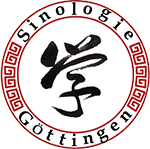
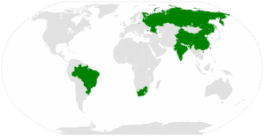

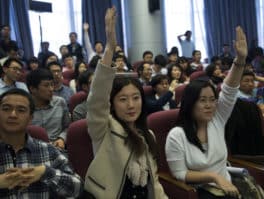

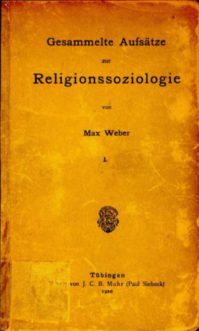


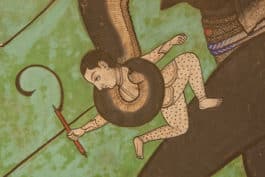



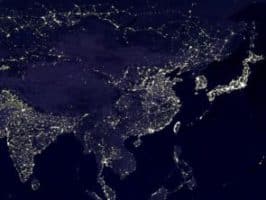

![5440293198_7b9a7a6794_o-886×668[1]](https://www.sinologie-goettingen.de/wp-content/uploads/2017/10/5440293198_7b9a7a6794_o-886x6681-e1509698683561.jpg)

